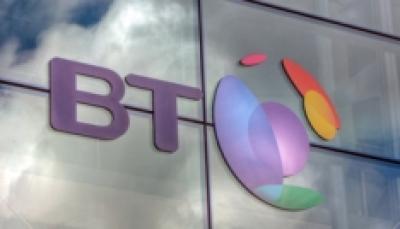BT Boss Condemns Government Piracy Measures

Ian Livingstone has spoken out against the government’s Digital Economy Bill, saying that file-sharers should be fined rather than cut off
BT chief executive Ian Livingstone has joined a group of industry executives and high profile figures – from organisations including Orange, Virgin Media, Google and the Open Rights Group – in writing an open letter to the Financial Times, urging that changes be made to the Digital Economy Bill.
The letter criticises the most recent amendment to the Bill – Amendment 120A – which would enable courts to issue an injunction against any website accused of hosting a “substantial proportion” of material that infringes copyright. This could ultimately result in sites such as YouTube being forced offline.
“This amendment not only significantly changes the injunctions procedure in the UK but will lead to an increase in Internet service providers blocking websites accused of illegally hosting copyrighted material without cases even reaching a judge,” the letter warned. “The amendment seeks to address the legitimate concerns of rights-holders but would have unintended consequences that far outweigh any benefits it could bring.”
The executives go on to express their outrage at the way the House of Lords has attempted to rush through the controversial proposal at the tail end of a parliament, without consulting either consumers or the industry – describing it as “very poor lawmaking”.
“Put simply, blocking access as envisaged by this clause would both widely disrupt the Internet in the UK and elsewhere and threaten freedom of speech and the open Internet, without reducing copyright infringement as intended,” they said. “We are particularly concerned that a measure of this kind as a general purpose policy could have an adverse impact on the reputation of the UK as a place to do online business and conflict with the broader objectives of Digital Britain.”
 Livingstone argues that a better way to tackle illegal file-sharing would be to issue fines to persistent offenders, claiming that suspending their Internet access goes against “natural justice”.
Livingstone argues that a better way to tackle illegal file-sharing would be to issue fines to persistent offenders, claiming that suspending their Internet access goes against “natural justice”.
“If someone is accused a fine can be issued, a bit like a speeding offence,” Livingston told BBC News. “They can appeal it. If they don’t appeal it then they pay a fine.”
He suggested that the money generated could be used to compensate the creative industries, or alternatively to support the rollout of broadband across the UK. “I’m trying to be constructive, not destructive,” he added.
Other aspects of the Digital Economy Bill have already been widely criticised by members of the industry, including the UK Internet Service Providers Association (ISPA) and broadband Internet service provider TalkTalk. Back in November, TalkTalk chief Charles Dunstone describing the Bill as a “backward step in the efforts to reduce illegal file sharing”.
“We don’t support copyright infringement in any way but we live in the real world and understand that no amount of policing and censorship will solve the problem,” explained Dunstone in a blog post. “It doesn’t matter how many websites are blocked, how many services are shut down or how many individuals are pursued, people will always find ways to access copyrighted content for free.”
Dunstone has also said he would be prepared to fight the government in court if the Bill became law.
Earlier this month it emerged that the Digital Economy Bill could put owners of open access Wi-Fi hotspots at risk of huge liability fines. The government explained in its official advice (PDF) that it will not exempt universities, libraries, and small businesses that provide open Wi-Fi services from the Bill’s copyright crackdown, meaning that these organisations risk the same penalties for copyright infringement as individual subscribers.
“It is clearly unfair that any site offering Wi-Fi, and any of their customers enjoying the service, should lose their access because of accusations against individual users,” said a BT spokesperson at the time. “This means that we and our business customers may potentially be responsible for actively deterring customers from copyright-infringing activities.”